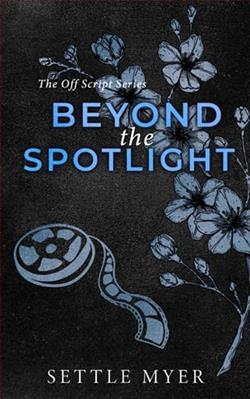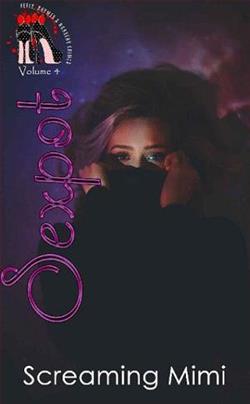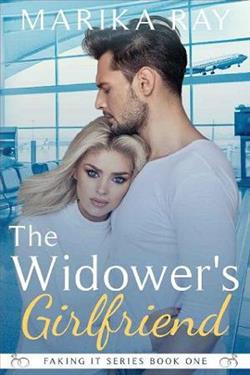Page 3 of Exit Lane
“Not only true, but not the first time. My dad always tried to tell people he was the first to do it in the ’80s.”
“Absolute legend. Please tell him I said so.”
My face falls, and my instinct is to blame myself for initiating conversation, as if Teddy and I could ride like monks for the better part of two days. Lightheaded, I feel a familiar apprehension build: the one that precedes dropping the dead-parent bomb in a conversation. Teddy and I have a long drive ahead of us. And I have the sneaking suspicion he might have a very healthy relationship with two living parents. Hands sweating, I respond as quickly as possible.
“Dead, or, sorry, he’s dead. He got sick when I was in high school. Did you ever see the parking lot painted in purple cancer ribbons?”
His head swivels toward me, making brief but direct eye contact before returning his gaze to the road. “I’m so sorry, Marin.” He says it slowly and intentionally, with the kind of weight I don’t normally get in response to this disclosure. It lands somewhere soft. And I suddenly feel safe. “Of course I saw them. I was doing driver’s ed there when they went up and kept wondering who the local celebrity was.”
“That was my dad. Wait, was Mr.Lichen your driver’s ed teacher?”
At this, Teddy throws back his head, laughing with his whole body, and reaches across the space between us, resting his hand on the headrest of my seat. I expect to tense at the proximity, but there’s something settling about his presence there. Mr.Lichen was an instructor that rich parents hired on the side to offer a not-totally-state-sanctioned course condensed into three weeks.
“I had to spend the summer campaigning for student council,” he offers. “What was your excuse?” I smile, wondering why it took us eighty miles to break the ice.
“Dead dad.” I shrug. “He was about to go into hospice, and my mom needed someone else to cart my sister around as soon as possible.” Teddy listens, eyes on the road, his hand still centimeters from my shoulder.
“I can’t imagine,” he whispers with a reverence I find refreshing from someone I wrote off as unserious. “He’d be proud of you, I’m sure.”
I nod, wordless in the way thinking about my dad often makes me. “We don’t have to keep talking about it. But thank you.”
He moves his hand to the back of my seat to change lanes and then to the wheel. “So you must know my ex, then.” Teddy’s buzzing—clearly the kind of person powered by nostalgia, who loves a round of regional six degrees of separation. “She’s the one who made the ‘Sacred Heart Girls Get On Their Knees’ T-shirts for our state semifinals against you guys in 2010.”
I guffaw in response, then quickly gather myself. Should I tell him? I don’t have to. I shift in my seat, and I can’t quite get comfortable—we’re careening toward unbridled honesty, and it feels awkward or maybe unfair to retreat now. The sun is setting, we’re three hours in, and it’s not like I’ll ever see this guy again. I suck in a deep breath as a mischievous smile spreads over my mouth.
Teddy
My mouth falls open, but I close it again and shake my head firmly. Being next to Marin makes me feel like I’m on my second espresso—nervous, excited, and without a clue as to where things will end up. “No, Maddie’s straight.”
The suggestion—well, the claim—is that Marin and Maddie hooked up in the back of Marin’s Jetta after a homecoming game. I mean, Maddie and I weren’t a perfect match, but... I watch Marin’s face for clues and try not to calculate how much she’s drifted toward the center console, unsure whether it’s mere observation or wishful thinking.
“No, no. She’s a full-send lesbian.” Marin can barely get the words out between laughing. Her smile cracks open, andfuck. My palms go sweaty, and I drop one hand out the window just to try to dry it off.
Marin folds a leg under her and angles her body toward me. “She went to Smith. Teddy, she had a mullet inhigh school.” We laugh—her with abandon, me with nervous realization.
“Well, thanks for putting a nail in the coffin of any dream I ever had of marrying my high school sweetheart.”
Marin scrunches her nose, like I’ve said something distasteful. No, I did not think Maddie and I might end up together at this point, but I always liked the idea that maybe I’d have a young-love story like my parents. The picture-perfect marriage that my dad almost ruined when he cheated with his secretary, Carter’s aunt, during my junior year of high school. But we’re Midwestern. We cried on the sofa and swept it under the rug, and things have been fine ever since. Not that I’m going to mention it to Marin.
“Ok, my turn,” I say, changing the subject. “What I know about you is that your best friend is the smartest, most interesting woman at the University of Iowa.”
A cop siren sounds to our left. Marin rolls her eyes and manages to explicitly direct this gesture at me. “In this case, Teddy, she’s not gay, but it’s just never going to happen.” It’s not really news to me, but I sulk a little anyway.
Marin dismisses my sullen expression with a flick of her wrist, and it feels almost like we’re bantering. “Here’s whatisgoing to happen: Sloane’s going to write an Oscar-winning movie, and then we’ll go on a thirty-day trip to Japan and renovate brownstones across the street from each other in Brooklyn.” It’s funny to hear her talk like this. To witness her so excited about a future that’s not all that distinct from the one Carter and I picture—just different settings, different trappings. Marin’s glowing in the passenger seat, like she’s trying to suppress the sunniness Sloane brings out in her but can’t.
“It sounds like I might not be the only one in love with Sloane Bachman.”
Another eye roll. “I’m sure you’re too lost in the mire of masculinity to understand a concept like a best friend, but she’s mine. So in that sense, she’s the love of my life, but I’m not trying to marry her. Or sleep with her, for that matter.”
“‘The mire of masculinity’?” I crack back. “I’ll have you know that my best friend Carter is the love of my life too. And I’m not trying to sleep with him either.”
She reaches for her bag of snacks, smirking. “I like that you think you had to tell me you’re straight.”
I go silent, unsure if I have an opening to ask the question that’s been rattling around since she slid into my car: Is Marin only into girls? She’s wearing patent loafers and ribbed socks for a cross-country road trip, which feels like it might be my answer, but I don’t want to come across asoffensivelystraight. And besides, this is just a curiosity triggered by forced proximity and a lack of soundtrack, nothing more. Maybe I just need to leave it alone.
“Tell me a Sloane story,” I say instead, navigating past a sputtering semi.
Marin recounts the time Sloane attempted to learn “Edelweiss” on a harp she found at the Iowa City Goodwill the week before a talent show, and I get a chance to take her in. The way she speaks, with her whole body, it’s like the words are electricity running through her fingertips. The Diane Keaton comparison was rash. She’s languid and boyish, but as I glance over my shoulder to change lanes, I notice a black lace bra beneath her barely buttoned striped oxford. Her hair,a nothing color between brown and blond, seemed unremarkable at first, but the way it falls, framing her face, only for her to push it behind her ears when she’s about to make the punch line, delights me.















